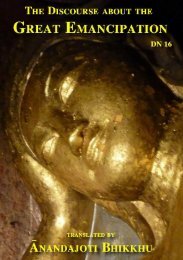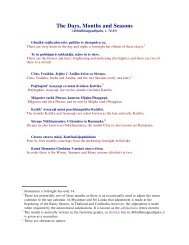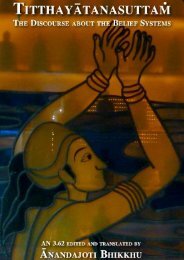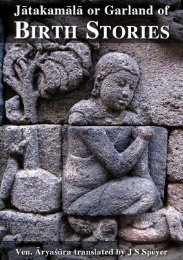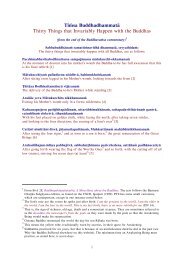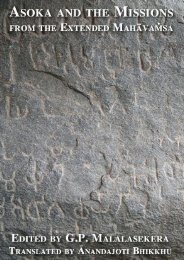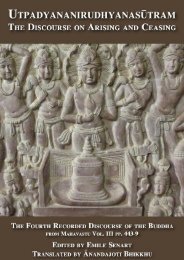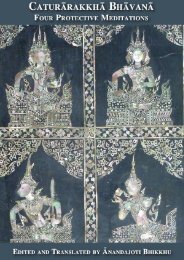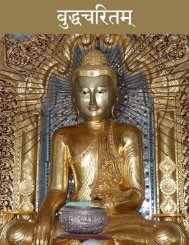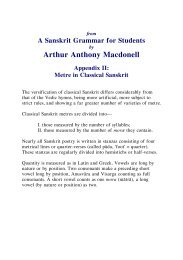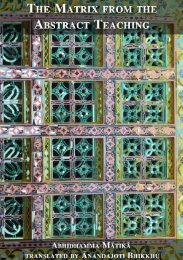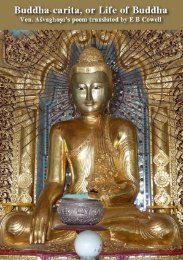MahÄkhandhako The Great Chapter - Ancient Buddhist Texts
MahÄkhandhako The Great Chapter - Ancient Buddhist Texts
MahÄkhandhako The Great Chapter - Ancient Buddhist Texts
You also want an ePaper? Increase the reach of your titles
YUMPU automatically turns print PDFs into web optimized ePapers that Google loves.
I. <strong>The</strong> First Teachings - 71<br />
‘Evaṁ me viññāṇaṁ hotu, evaṁ me viññāṇaṁ mā ahosī.’ ti<br />
‘Let my consciousness be thus, let my consciousness be not thus.”<br />
Taṁ kiṁ maññatha bhikkhave:<br />
What do you think of this, monks:<br />
“Rūpaṁ niccaṁ vā aniccaṁ vā” ti<br />
“(Is) bodily form permanent or impermanent”<br />
“Aniccaṁ Bhante.”<br />
“Impermanent, venerable Sir.”<br />
“Yaṁ panāniccaṁ dukkhaṁ vā taṁ sukhaṁ vā” ti<br />
“But that which is impermanent, (is) that unpleasant or pleasant”<br />
“Dukkhaṁ Bhante.”<br />
“Unpleasant, venerable Sir.”<br />
“Yaṁ panāniccaṁ dukkhaṁ vipariṇāmadhammaṁ,<br />
“But that which is unpleasant and changeable,<br />
kallaṁ nu taṁ samanupassituṁ:<br />
is it proper to regard it thus:<br />
‘Etaṁ mama esoham-asmi eso me Attā’ ” ti<br />
‘This is mine, this I am, this is my Self’ ”<br />
“No hetaṁ Bhante.”<br />
“Certainly not, venerable Sir.” 134<br />
“Vedanā niccā vā aniccā vā” ti<br />
“(Is) feeling permanent or impermanent”<br />
“Aniccā Bhante.”<br />
“Impermanent, venerable Sir.”<br />
“Yaṁ panāniccaṁ dukkhaṁ vā taṁ sukhaṁ vā” ti<br />
“But that which is impermanent, (is) that unpleasant or pleasant”<br />
“Dukkhaṁ Bhante.”<br />
“Unpleasant, venerable Sir.”<br />
“Yaṁ panāniccaṁ dukkhaṁ vipariṇāmadhammaṁ,<br />
“But that which is unpleasant and changeable,<br />
134 It is interesting that the second argument against the concept of a Self relies on the notion<br />
of suitability to uphold its truth.



